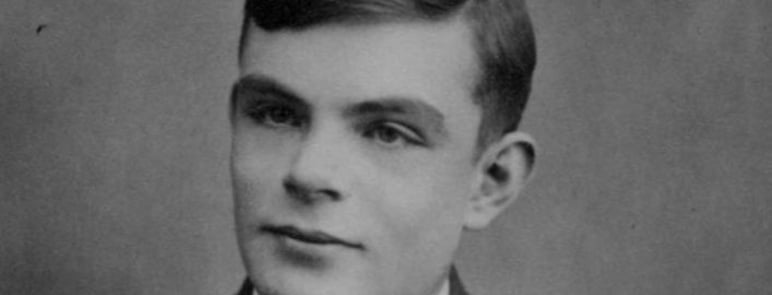Alan Turing
A gay man born before his time and also a parent of modern computing, Alan Turing is a vivid role model whose story is inspirational and also a potent warning.
If someone has a list of credits that include computer scientist, mathematician, logician, cryptanalyst and theoretical biologist it's rare that they would have any sort of profile beyond the world of academia. However, the polymath academic Alan Turing's name is embedded in popular culture, celebrated through numerous films and books. Being played by Benedict Cumberbatch only enhanced existing public knowledge.
Turing's story is more widely known than ever, especially due to the tragic backdrop of his largely hidden life in pre- and post-World War Two Britain. Gordon Brown's 2003 apology for his treatment, at a time when attitudes towards homosexuality were very different, brought him to yet wider attention. But that part of his story should not draw focus from the genuinely world changing work he did.
The concept of Turing Machines and the Turing test lie in his most famous paper: 'On Computable Numbers, with an Application to the Entscheidungs problem', published in 1936. This paper was highly influential in the development of theoretical computer science, providing a formalisation of the concepts of the algorithm and computation with the Turing machine, which can be considered a model of a general purpose computer.
And, of course, some of his ideas were given practical application. During the Second World War, when the Germans felt that they had unbreakable codes produced by their Enigma cipher machines, the pioneering work of Alan Turing with the electro-mechanical computer the Bombe dashed that hope.
The Bombe was the brainchild of Turing and Gordon Welchman, combined with the engineering skills of the British Tabulating Machine Company in Hertfordshire. They enabled Bletchley Park's cryptographers to decode over 3,000 enemy messages a day and turn the course of the war. Without that information the Battle of Britain and the Battle of the North Atlantic could have been lost, making a British surrender inevitable.
BCS recognise his legacy with the Turing lecture series, sometimes shedding even more light on Turing himself. In 2012 Professor Ray Dolan's presentation 'From cryptanalysis to cognitive neuroscience - a hidden legacy of Alan Turing' shed further insight into how Turing's strongly Bayesian problem-solving approaches have advanced developments in understanding the workings of the brain and the human mind.
2017 marks the 50th anniversary of the decriminalisation of homosexuality, the law which saw Alan Turing chemically castrated. He died in 1954 but today he is known for being an eccentric yet passionate mathematician, who conceived modern computing.
Turing is BCS's first role model because not only was he gay man before his time he was an exceptional talent with a brilliant mind.









